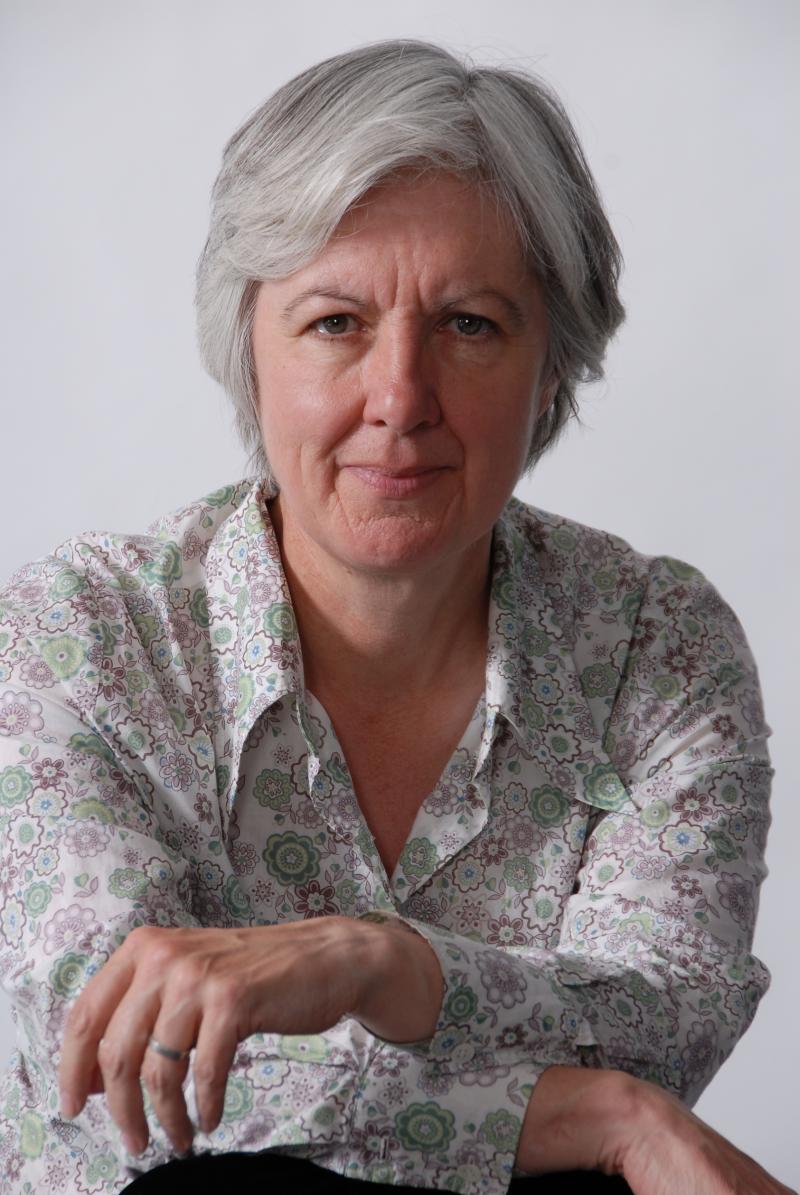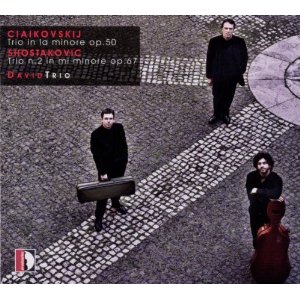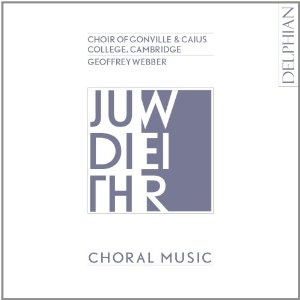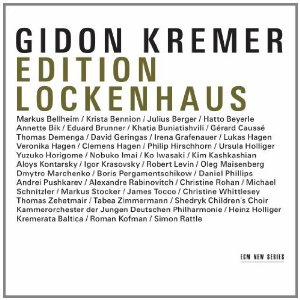Classical CDs Weekly: Tchaikovsky, Shostakovich, Weir, Lockenhaus Festival | reviews, news & interviews
Classical CDs Weekly: Tchaikovsky, Shostakovich, Weir, Lockenhaus Festival
Classical CDs Weekly: Tchaikovsky, Shostakovich, Weir, Lockenhaus Festival
Intense Russian piano trios, Scottish choral music and live recordings from an Austrian chamber music festival


A logical coupling of two Russian chamber works, played by a young Italian trio. The massive scale of Tchaikovsky’s A minor trio will surprise the unwary. A few years before its completion in 1882, the composer had claimed that he’d never written a piano trio because he couldn’t bear the sound of solo strings pitted against piano (“sheer torture”). When the work appeared, dedicated to the memory of Tchaikovsky’s pianist friend Nikolai Rubenstein, the composer worried that the trio was “symphonic music adapted to a trio format” rather than a true chamber work. The enormous scale of the piece – it lasts nearly 50 minutes – illustrates quite why Tchaikovsky was worried. It’s fascinating, ripe stuff though, straddling two huge movements – the second consisting of an elaborate, extended set of variations. Claudio Trovajoli tackles the terrifying piano part with relish – his restrained statement of the second movement’s theme contrasting nicely with the flamboyance of the balletic faster variations. He’s superb in the macabre coda to the work – a bleak close which hasn’t lost its power to shock.
Shostakovich’s 1945 Piano Trio No 2 has never seemed as perfect a work as his earlier Piano Quintet; the greyness of mood too overpowering. Violinist Daniele Pascoletti and cellist Patrizio Serino are chilling in the opening paragraph; their harmonics perfectly attuned. The first movement’s taut construction is still a marvel, and it’s a relief to hear such restrained piano writing after 47 minutes of Tchaikovskian excess. The Scherzo is frenetic and leery, followed by a bone-chilling Largo. The trio’s most famous section is the last movement’s klezmer-style dance macabre; it’s odd that the translated sleeve notes make no mention of the theme’s Jewish origins. Serino’s pizzicato bass line is terrifying. You can’t really enjoy this piece, but as a once-in-a-while experience the David Trio’s performance is excellent. The recorded sound is as intense and immediate as the playing.

Scottish composer Judith Weir once listed two of her influences as John Tavener and Aaron Copland, both composers who have sought to express ideas in a simple way, however complex the processes behind them. There’s something of Copland’s attractive breeziness in several of the choral works collected on this disc.
This is predominantly accessible, tonal music – but there’s never any sense of Weir copping out and taking the easy route. The best things here are the miniatures – a fantastically clever a cappella setting of William Blake’s My Guardian Angel compressed into barely two minutes, its simple "Alleluia" chant overlaid with increasingly rich part-writing. There’s an enchanting setting of three ee cummings poems, composed for a young people’s choir in New York – Weir’s choice of marimba for the accompaniment a perfect choice. Her Psalm 148 was one of a number of contemporary psalms commissioned for performance in 2009 – a stipulation being that a single instrument accompanied. Weir boldly chose solo trombone, played here by Matthew Knight. Again, it works magnificently – sounding assertive and sonorous, bouncing around the resonant acoustic of Jesus College Chapel.
Ascending into Heaven is one of the longer pieces here. It’s more self-consciously virtuosic – the upward trajectory of Weir’s 10th-century text traced by organ flurries and immaculately sung choral glissandi, performed here with staggering accuracy and palpable humour. Madrigal begins as a chunk of pastiche plainchant before it seamlessly slips us into the 21st century. Delphian’s engineering is ideal, with the resonance never drowning the detail. Matthew Fletcher plays the two short organ works. Both are fast moving, pungent and accessible. Buy this for Weir’s choral music though – the singing of Geoffrey Webber’s Choir of Gonville and Caius College is flawless.

Violinist Gidon Kremer started the Lockenhaus Festival in 1981 – a celebration of chamber music held each summer in a small Austrian town. Kremer’s fingerprints are all over the festival’s eclectic programming; his friendship with ECM founder Manfred Eicher led to recordings made during the festival’s early years. These are now reissued, along with two significant new performances of Strauss and Messiaen made with the Kremerata Baltica in 2001 and 2008 respectively.
I love listening to Strauss’s 1945 Metamorphosen, but the work also makes me slightly queasy. It’s a memorial to German opera houses destroyed by Allied bombings and an expression of the composer’s "grief for Munich" – worthy sentiments, but one would have hoped that the human tragedies of World War Two might have prompted Strauss into action rather earlier. Sir Simon Rattle’s is a reading of extremes – best of all in the ecstatic, operatic climax 18 minutes in, shortly before the texture collapses and it’s as if we’re staring death in the face. The playing is impassioned, untidy but exciting, and the slow, defeatist winding down towards the Beethoven quote is agonising but electrifying.
Messiaen’s Trois petites liturgies de la présence divine was another artistic response to external events, premiered in Paris in 1943. It’s a useful antidote to Strauss’s Teutonic gloom - those little ondes Martenot whoops set against children’s chorus in the second movement providing subversive uplift. It’s superbly performed by the Shedryk Children’s Choir of Kiev with Roman Korfman conducting.
What of the other four discs? There’s an interesting range of material here, from Poulenc songs to rarities by Caplet and Schulhoff; an impassioned reading of the Franck Piano Quintet and two of Shostakovich’s darker quartets alongside small-scale works by Stravinsky. All given exciting, very live-sounding performances in close, detailed sound. But the best reason for getting the set is for the chance to hear the Messiaen rarity – music which invokes Marmite-style reactions in listeners. It’s a stunner – miss it and it’s your loss.
Explore topics
Share this article
The future of Arts Journalism
You can stop theartsdesk.com closing!
We urgently need financing to survive. Our fundraising drive has thus far raised £49,000 but we need to reach £100,000 or we will be forced to close. Please contribute here: https://gofund.me/c3f6033d
And if you can forward this information to anyone who might assist, we’d be grateful.

Subscribe to theartsdesk.com
Thank you for continuing to read our work on theartsdesk.com. For unlimited access to every article in its entirety, including our archive of more than 15,000 pieces, we're asking for £5 per month or £40 per year. We feel it's a very good deal, and hope you do too.
To take a subscription now simply click here.
And if you're looking for that extra gift for a friend or family member, why not treat them to a theartsdesk.com gift subscription?
more Classical music
 Elschenbroich, Grynyuk / Fibonacci Quartet, Edinburgh International Festival 2025 review - mahogany Brahms and explosive Janáček
String partnerships demonstrate brilliant listening as well as first rate playing
Elschenbroich, Grynyuk / Fibonacci Quartet, Edinburgh International Festival 2025 review - mahogany Brahms and explosive Janáček
String partnerships demonstrate brilliant listening as well as first rate playing
 BBC Proms: Akhmetshina, LPO, Gardner review - liquid luxuries
First-class service on an ocean-going programme
BBC Proms: Akhmetshina, LPO, Gardner review - liquid luxuries
First-class service on an ocean-going programme
 Budapest Festival Orchestra, Iván Fischer, Edinburgh International Festival 2025 review - mania and menuets
The Hungarians bring dance music to Edinburgh, but Fischer’s pastiche falls flat
Budapest Festival Orchestra, Iván Fischer, Edinburgh International Festival 2025 review - mania and menuets
The Hungarians bring dance music to Edinburgh, but Fischer’s pastiche falls flat
 Classical CDs: Hamlet, harps and haiku
Epic romantic symphonies, unaccompanied choral music and a bold string quartet's response to rising sea levels
Classical CDs: Hamlet, harps and haiku
Epic romantic symphonies, unaccompanied choral music and a bold string quartet's response to rising sea levels
 Kolesnikov, Tsoy / Liu, NCPA Orchestra, Chung, Edinburgh International Festival 2025 review - transfigured playing and heavenly desire
Three star pianists work wonders, and an orchestra dazzles, at least on the surface
Kolesnikov, Tsoy / Liu, NCPA Orchestra, Chung, Edinburgh International Festival 2025 review - transfigured playing and heavenly desire
Three star pianists work wonders, and an orchestra dazzles, at least on the surface
 BBC Proms: Láng, Cser, Budapest Festival Orchestra, Iván Fischer review - idiomatic inflections
Bartók’s heart of darkness follows Beethoven’s dancing light
BBC Proms: Láng, Cser, Budapest Festival Orchestra, Iván Fischer review - idiomatic inflections
Bartók’s heart of darkness follows Beethoven’s dancing light
 Weilerstein, NYO2, Payare / Dueñas, Malofeev, Edinburgh International Festival 2025 review - youthful energy and emotional intensity
Big-boned Prokofiev and Shostakovich, cacophonous López, plus intense violin/piano duo
Weilerstein, NYO2, Payare / Dueñas, Malofeev, Edinburgh International Festival 2025 review - youthful energy and emotional intensity
Big-boned Prokofiev and Shostakovich, cacophonous López, plus intense violin/piano duo
 theartsdesk at the Three Choirs Festival - Passion in the Cathedral
Cantatas new and old, slate quarries to Calvary
theartsdesk at the Three Choirs Festival - Passion in the Cathedral
Cantatas new and old, slate quarries to Calvary
 BBC Proms: Estonian Philharmonic Chamber Choir, Kaljuste review - Arvo Pärt 90th birthday tribute
Stillness and contemplation characterise this well sung late-nighter
BBC Proms: Estonian Philharmonic Chamber Choir, Kaljuste review - Arvo Pärt 90th birthday tribute
Stillness and contemplation characterise this well sung late-nighter
 BBC Proms: Kholodenko, BBCNOW, Otaka review - exhilarating Lutosławski, underwhelming Rachmaninov
Polish composers to the fore in veteran conductor’s farewell
BBC Proms: Kholodenko, BBCNOW, Otaka review - exhilarating Lutosławski, underwhelming Rachmaninov
Polish composers to the fore in veteran conductor’s farewell
 theartsdesk at the Pärnu Music Festival 2025 - Arvo Pärt at 90 flanked by lightness and warmth
Paavo Järvi’s Estonian Festival Orchestra still casts its familiar spell
theartsdesk at the Pärnu Music Festival 2025 - Arvo Pärt at 90 flanked by lightness and warmth
Paavo Järvi’s Estonian Festival Orchestra still casts its familiar spell

Add comment